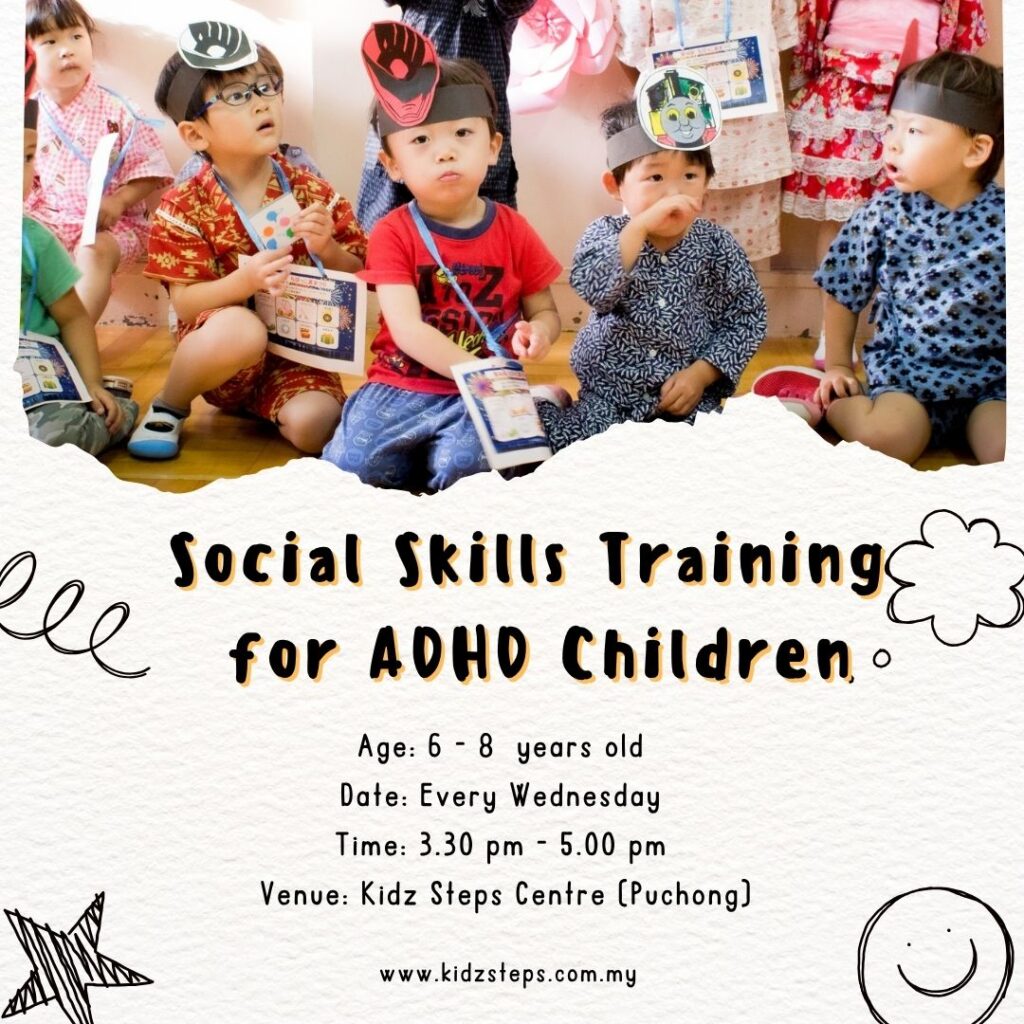Social Skills Training for ADHD Children: Building Flexible Thinking and Positive Peer Relationships

Help Your Child with ADHD Thrive Socially
Children with ADHD often face more than just difficulty sitting still or staying focused. Many of them struggle in group settings, especially when playing or working with friends. They may insist on going first, refuse to lose a game, or become very upset when things don’t go their way.
Because of this, they may frequently argue with peers, get excluded from playgroups, or face challenges in the classroom. These experiences can lead to stress — not just for the child, but for parents, teachers, and caregivers too.
That’s why our upcoming Group Social Skills Training for ADHD children (ages 6–8) focuses on one key goal: helping children learn to be more flexible in their thinking.
Why Group Social Skills Training for ADHD Children?
Group training isn’t just about learning social rules — it provides a hands-on, supportive environment where children can practice social skills in real time with peers, guided by a professional.
At Kidz Steps Centre, we are launching a 10-session group program starting mid-August 2025, specially designed to help ADHD children build flexibility, emotional regulation, and peer cooperation.
What Is Flexible and Stuck Thinking?
Flexible thinking means being able to adapt your behavior based on the situation and the people around you. A flexible thinker can:
- Change plans when needed
- Try new ways to solve a problem
- See things from others’ perspectives
- Stay engaged in group activities even when things don’t go their way
For example, if your child wanted to go first in a game but someone else does, they might say: “That’s okay — I’ll go first in the next round!”
Stuck thinking, on the other hand, happens when a child can only see one way to do something. They might:
- Insist that others follow their way
- Get frustrated when routines change
- Struggle to stop one activity and move on to another
- Miss social cues or misunderstand how others are feeling
This makes it difficult for children with ADHD to follow group routines, adapt to classroom transitions, and maintain friendships.
Why Teach Flexible Thinking?
Life is full of change — especially in social situations. Whether it’s a birthday party, classroom activity, or family outing, children are expected to:
- Pay attention to what’s happening around them
- Notice how others feel
- Adjust their behavior or plan based on the group
ADHD can make all of this much harder. Teaching flexible thinking step-by-step, especially in a structured group setting, helps children:

- Stay calm and problem-solve during unexpected changes
- Get along better with friends and siblings
- Participate more successfully in school and social activities
Program Details
Start Date: Mid-August 2025
Duration: 10 weekly sessions + 1 parent feedback session after the program
Age Group: 6–8 years old
Facilitator: Licensed and registered counselor with over 14 years of experience supporting children with ADHD
How to Enroll
Book a Free Consultation
Call us to schedule a free consultation. Our psychologist will meet with you and your child to assess whether this group program is the right fit.
Secure Your Spot
If your child is suitable for the group, we’ll proceed with registration and send you the invoice. Once confirmed, your child will be ready to join the group and begin learning with peers.
Common Challenges of ADHD: What Every Parent Should Know
Therapy for ADHD: How Therapy Can Help Children Thrive
Helping Children with ADHD: The Positive Impact of Behavior Therapy
